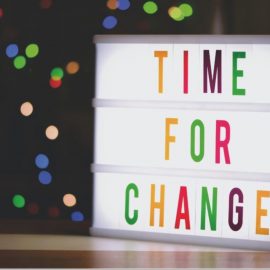
How good are you? Are you at your best when you’re around others or when you’re on your own?
In You Are Not So Smart, David McRaney reveals fascinating insights about human behavior and self-perception. He explores how our actions change in group settings and why we’re not as independent-minded as we’d like to believe.
Keep reading to discover why it can be more difficult to maintain your values and motivation when others are around.
Are You as Good as You Think?
Just how good are you? McRaney asserts that we aren’t as honorable as we believe ourselves to be—especially under the pressure and influence of others. We’ll discuss how this truth plays out in human behavior.
Thought Error: Your Motivation to Do Good Diminishes in the Presence of Others
McRaney explains that, despite wanting to do good, we’re less motivated to do so when we’re around others. This can be seen in psychological phenomena such as the bystander effect (the more people are involved in the situation, the less motivated we are to act) and social loafing (the more people are involved in a task, the more we slack off). These phenomena occur for two reasons. First, the more people there are in a setting, the more we lose personal accountability and rely on others to act. Second, we’re shy—we don’t want to act in front of the group and garner attention.
For example, if 10 people are working together to clean a space, you likely won’t work as fast or as hard because you know there are others to pick up the slack. Likewise, if there’s a tree branch on the road and there’s a line of cars behind you, you’re unlikely to get out and move the obstruction—you don’t want to be a spectacle, and you tell yourself there are others to deal with it.
(Shortform note: Both the bystander effect and social loafing result from a phenomenon called diffusion of responsibility, where the bigger a group is, the less responsibility and motivation to act each person feels. Research shows that there’s an exception to this rule if an individual feels that others in the group are unable to help. For example, if you’re on a plane with 100 passengers and someone is having a seizure, you’re unlikely to help unless you’re a doctor with expertise others lack.)
According to McRaney, the consequences of this thought error can be dire—not only does it decrease productivity, but it can lead to dangerous and even fatal outcomes. For example, if no one moves the tree branch, a car could hit it and get into a dangerous accident. McRaney says that to overcome the bystander effect, you should increase your self-awareness—if you’re stalling because others are around, recognize this behavior and push yourself to act instead. To avoid slacking off during group work, he recommends setting personal goals you’ll feel accountable to meet.
(Shortform note: McRaney offers advice that helps combat the bystander effect and social loafing after you notice them. However, there may be a way to prevent the diffusion of responsibility, the underlying cause of these thought errors—by adopting the Buddhist doctrine of dependent origin, or pratītyasamutpāda. This doctrine states that everything is interconnected, so someone else’s problem is also your problem. By adopting this mindset, you’ll be less likely to shrug off responsibility as someone else’s because you believe you’re directly involved and thus inherently responsible for helping.)
Thought Error 2: Your Crave Conformity
Next, McRaney explains that we like to believe we’re strong and make autonomous decisions, but our desire to fit in usually trumps the desire to be authentic and do the right thing. McRaney explains that this is because of our human instinct for security—when we fit in with others, we feel safe. This can be seen in psychological phenomena such as conformity, where we change our beliefs to fit into a group, and groupthink, where we reach a consensus in a group without critical thought to avoid disagreements. For example, you’re less likely to voice disagreement in a group setting, more likely to conform to the wishes of a superior, and naturally prone to join groups such as cliques or even cults.
McRaney says that these behaviors harm not only yourself but also the collective. Feeling unable to voice your opinions stifles creative thought and could prevent a better idea from coming to light. Failing to question authority could trap people within flawed systems. Your willingness to join a group and share an identity could cause you to lose your sense of personal identity and judgment. To avoid falling prey to this phenomenon, McRaney recommends practicing self-awareness and critical thinking—staying aware of your true thoughts and values (without the influence of others), questioning authority and group consensus, and not being afraid to speak your mind.






